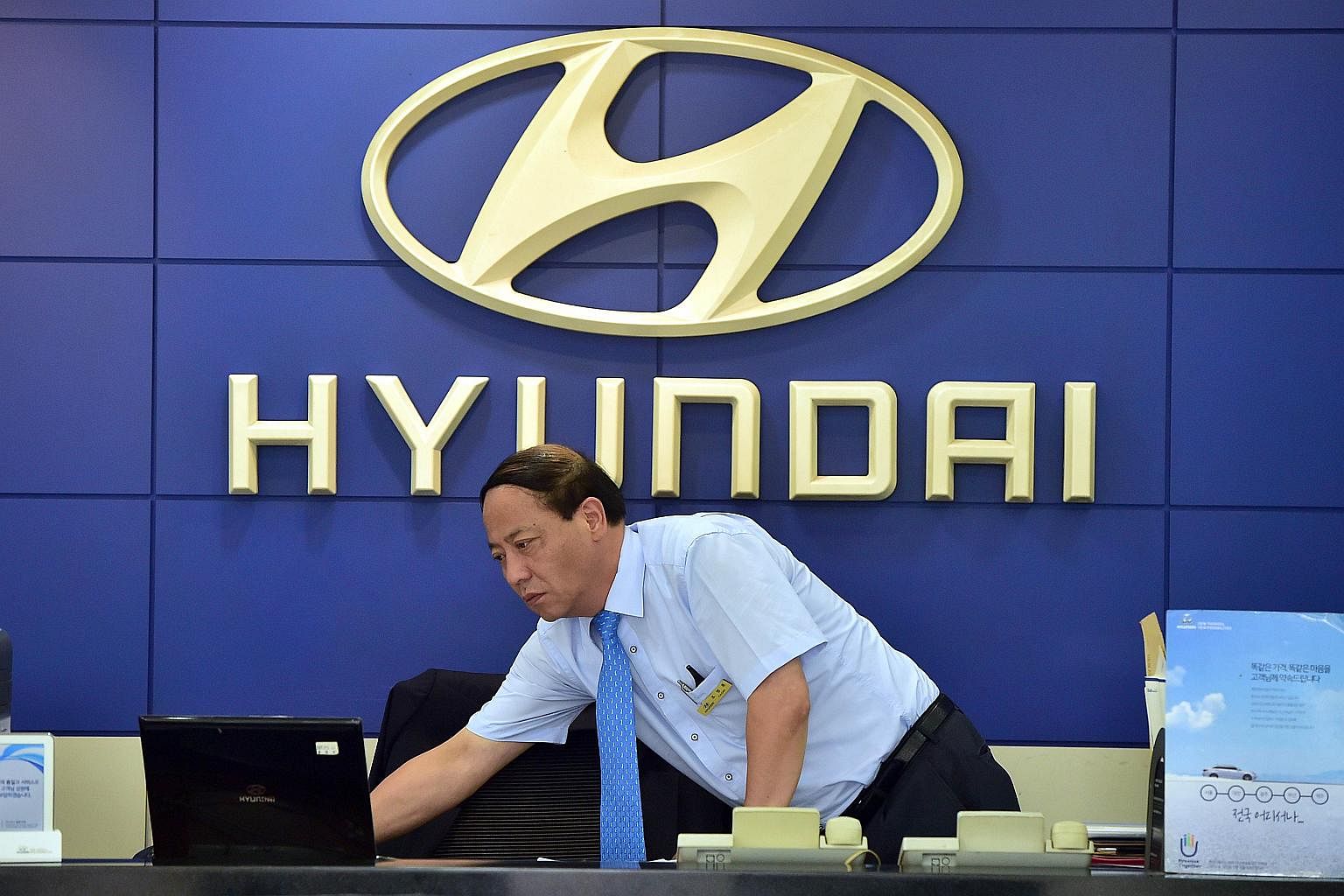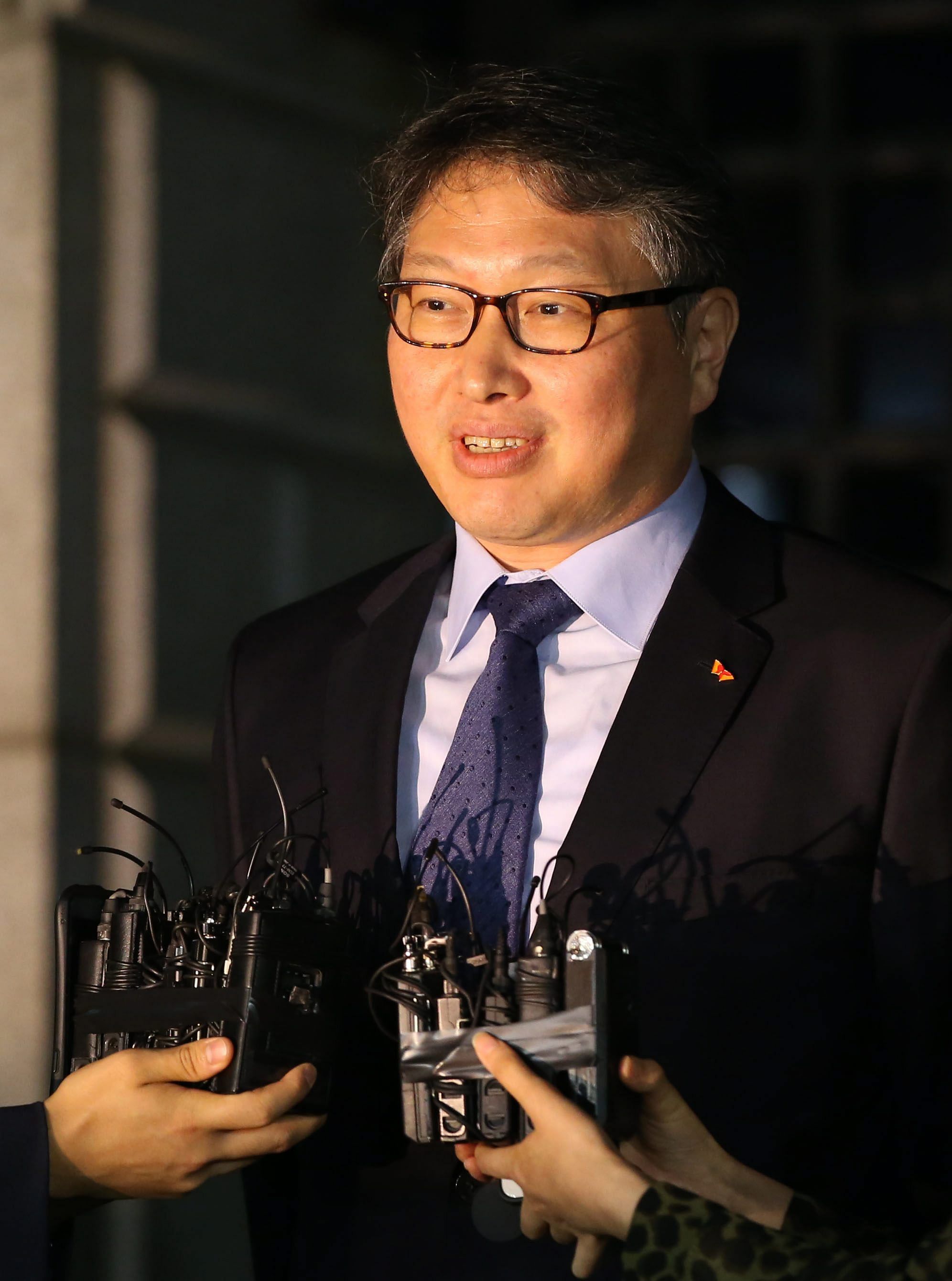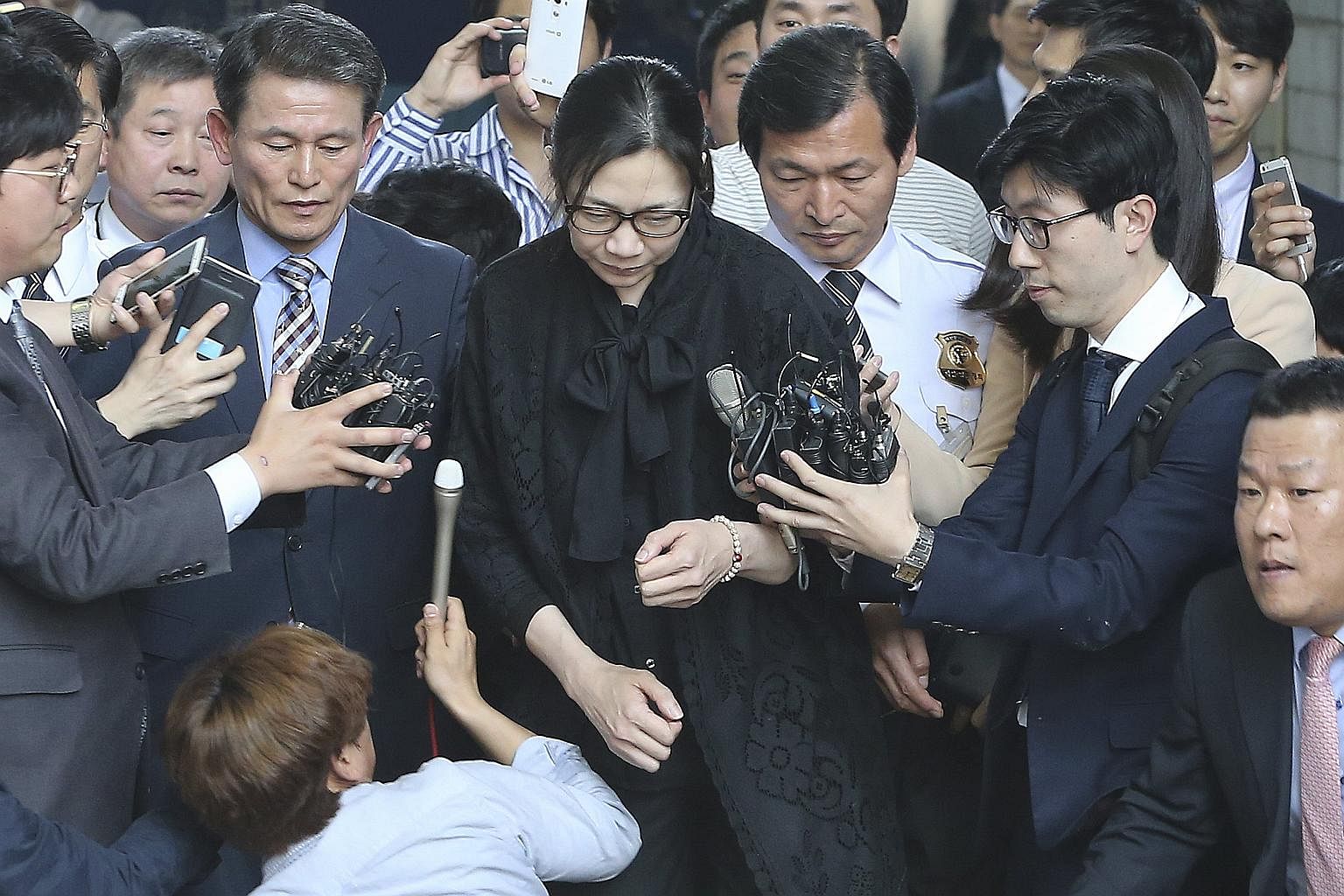This story, first published on Aug 5, 2015, was updated on Aug 14, 2015.
Brothers squabble. Son ousts father in boardroom coup. Father strikes back. That is the gist of the family drama plaguing retail and hotel giant Lotte Group, the fifth-largest chaebol, or family-owned conglomerate, in South Korea.
Business empires like this may have built the economic miracle on the Han River and lifted the country out of post-war poverty, but their autocratic leadership and dynastic succession practices have also drawn harsh criticism and spawned numerous controversies.
Corruption and misconduct was also rampant. While such chaebols used to exert their power to skirt the law, the authorities have since toughened their stance against them.
Here's a look at five other scandal-wracked conglomerates:
1. Samsung Group

Its chairman Lee Kun Hee, 73, is the richest man in the country, with fortunes worth US$10 billion (S$13.7 billion). Founded in 1938 as a small trading company by Mr Lee's father, the group contributed 17 per cent of South Korea's gross domestic product in 2013, reports say.
Samsung was hit by a massive corruption scandal in 2007, when prosecutors started hauling in the bigwigs to investigate a slush fund, bribery of government officials and an illegal effort by Mr Lee to hand management control to his son Jae Yong, 47.
The whistleblower was the group's former chief lawyer, who testified that he was personally involved in the bribery.
Several executives were convicted, and the chairman himself was also forced to step down in 2008, and fined US$100 million for tax evasion and breach of trust.
A year later, he was pardoned by then South Korean President Lee Myung Bak - a controversial move that led to many saying that Samsung is "untouchable" because it wields too much business power.
More recently, Samsung has drawn flak for failing to contain the Middle East respiratory disease outbreak within Samsung Medical Centre, one of the country's top hospitals.
The approved merger between its de facto holding company Cheil Industries Inc, and its construction and trading unit Samsung C&T Corp, was also harshly criticised as a blatant effort to consolidate power and pave the way for Jae Yong to take over control of the group. Mr Lee has been in hospital since suffering a heart attack in the middle of last year.
2. Hyundai Group

Hyundai was founded as a small construction company in 1946 by the late Mr Chung Ju Yung, who was born in North Korea but escaped to the South.
Years of sibling feuding within Hyundai finally ended with the death of Mr Chung in 2001.
The empire, which was debt-ridden and under pressure to restructure due to reforms imposed by then President Kim Dae Jung, was split into separate units - Hyundai Motor, headed by second son Mong Koo; Hyundai Department Store Group, helmed by third son Mong Kun; Hyundai Group (fifth son Mong Hun), Hyundai Heavy Industries (sixth son Mong Joon), Hyundai Marine & Life Insurance (seventh son Mong Yoon), and Hyundai Finance Corp ( eighth son Mong Il).
Eldest son Mong Pil died in a car accident in 1982 and fourth son Mong Woo committed suicide in 1990.
Founder Mr Chung had originally chosen fifth son Mong Hun as his successor in 2000, but Mong Hun killed himself in 2003 amid a deepening scandal accusing him of illegally funneling money to the North in support of Mr Kim's Sunshine Policy.
Hyundai Group, which focuses on elevator manufacturing, logistics, finance, construction and IT, is now run by Mong Hun's widow Hyun Jeong Eun.
However, rivalry within the family still continues.
In 2010, Mdm Hyun and second son Mong Koo crossed swords in their respective bids to take over Hyundai Engineering & Construction. She lost.
3. SK Group

South Korea's third-largest chaebol and the world's second-biggest memory-chips maker, SK Group owns the country's biggest telco, SK Telecom. Other key business include petrochemical and construction.
SK was founded by the late Mr Chey Jong Kun in 1953 as a textile company, then handed over to his younger brother Jong Hyun, who embarked on aggressive expansion policies in the 1970s.
Jong Hyun's eldest son Tae Won, who married a former president's daughter, took over in 1998 and became chairman of the chaebol.
On Aug 13, 2015, Tae Won was released from jail - along with thousands of others - on a controversial presidential pardon to mark the 70th anniversary of the end of Japanese colonial rule over Korea. The 54-year-old had served 31 months out of his 48-month prison sentence for the embezzlement of nearly 50 billion won (S$59.5 million) in 2008.
It was the second such pardon he has received. In 2003, he was sentenced to three years in prison for his role in a US$1.3 billion (S$1.8 billion) accounting fraud. On that occasion, he was released after just seven months.
He vowed on Thursday (Aug 14) to turn over a new leaf and help develop the national economy.
4. Hanwha Group
One of top 10 chaebols, the Hanwha Group has key business in insurance, construction, chemicals and explosives. It also owns the tallest skyscraper in South Korea - the 264m-tall 63 Building.
Hanwha Group was founded as an explosives company in 1952 by Mr Kim Jong Hee. His son Seung Youn took over when he was just 29, after his father died.
After numerous run-ins with the law, whereupon he got away lightly, Seung Youn, 63, now Hanwha Group chairman, was finally sent straight to jail in 2012 when he was found guilty of embezzling almost 300 billion won.
He also had to pay a fine of 5.1 billion won.
Kim Junior, described as a "God-like figure", had his first brush with the law in 1993, when he was arrested for smuggling cash to Los Angeles to buy a mansion.
He was nabbed again in 2004 for bribery.
In 2007, he notoriously exacted revenge for his son, who was beaten up in a bar, by clobbering the bar's workers with a metal pipe while his bodyguards watched.
In all three cases, his jail sentence was suspended. But in the latest embezzlement case, the judge finally sentenced Seung Youn to four years in prison. He is currently on probation.
His sentencing broke the trend of presidential pardons being given to chaebol owners as they were deemed too important to the country's economy to be kept behind bars, creating the perception that the court was too lenient towards these big shots.
5. Hanjin Group

One of top 10 chaebols, the Hanjin Group operates Korean Air and a key shipping company.
Hanjin Group started out as a transportation company founded in 1945 by the late Mr Cho Choong Hoon, who was a sailor. His son Yang Ho is now the group's chairman.
Last December, Yang Ho's daughter Heather Cho, 40, then a vice-president of Korean Air, ordered a plane taxiing at JFK Airport in New York to turn back to the gate to expel two crew members for serving her nuts in a fashion that she deemed wrong.
She received a one-year jail term for violating aviation safety law, but was freed in May this year after winning a court appeal.
The case caused so much resentment against chaebol offsprings' arrogance and high-handed behaviour that lawmakers considered imposing legislation to punish the worst abuses.

